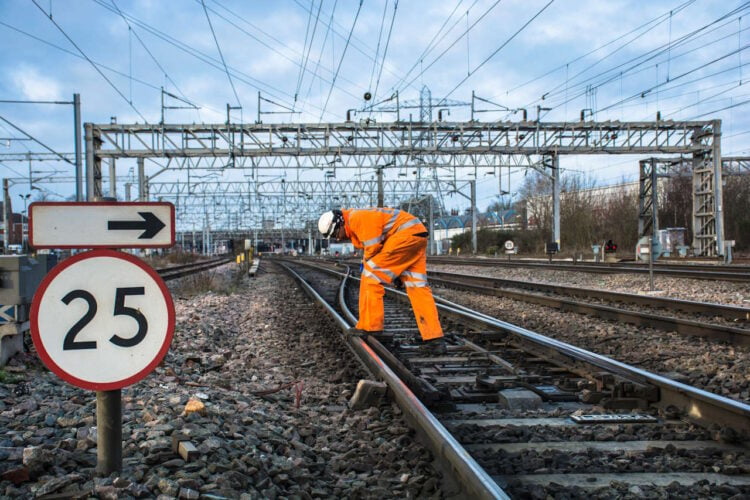A new survey by the Railway Industry Association (RIA) shows that over 50% of suppliers to the railway industry think their business will contract next year.
The survey was carried out independently by Savanta in September and October, and brought responses from 200 leading railway suppliers that highlighted a marked increase in negative sentiment among businesses during the last year.
The results showed that in the coming year:
- 24% thought the rail supply industry would grow;
- 54% said it will contract, the highest negative rating over the last five years;
- 48% thought their business would grow;
- 28% said it would contract, the lowest figure since 2019 when the survey was first conducted and is worse than during Covid;
- 83% thought it likely there would be a hiatus in rail work, such as due to a delay in GBR-related rail reform, or uncertainty over the completion of major projects.

In response to a hiatus in the coming year, rail industries are likely to:
- 44% will freeze or slow recruitment, up from 26% last year;
- 42% will prioritise work outside the UK;
- 35% will pause or slow plans to expand in the UK.
Only 13% think the Government will achieve its rail decarbonisation targets of removing all diesel-only trains off the network by 2040 and achieving a fully Net Zero railway by 2050. 87% think it won’t.
For the Government’s rail decarbonisation targets of removing all diesel-only trains by 2040 and a fully Net-Zero railway by 2050. 87% believe they won’t be achieved.
Commenting on the survey Darren Caplan, Chief Executive of the Railway Industry Association, said: “The survey’s conclusions are deeply concerning. They show rail business leaders in the UK anticipating a contraction in the rail market, at a time when Unife, the European trade association, is predicting 3% rail market growth every year around the world.
“The findings show the lowest levels of confidence among senior leaders on the growth outlook for their businesses over the next five years since 2019. Over 80% forecast a hiatus in work in the year ahead, as the Government has still not set out clear steps on rail reform or firm commitments and timescales for delivering major projects. This adversely impacts recruitment, expansion plans and suppliers, who will seek overseas markets where the prospects are considered better.
“With many rail business leaders still reeling from the news that HS2 Phase 2 between Birmingham and Manchester has been cancelled, the findings from this survey support the need for more certainty from the Government on what national, regional and local rail work both track and train it wants the railway industry to deliver in the months ahead.
“On the eve of the RIA Annual Conference in London on 1-2 November, we call on the Government to set out a clear roadmap for rail investment, whether involving the new Network North schemes, projects from the Rail Network Enhancements Pipeline which still hasn’t been updated in four years, the Integrated Rail Plan for the North & Midlands, and in the case of rolling stock, a plan for the mix of new and refurbished trains it wants to see in the years ahead.
“This would provide the certainty rail suppliers need, deliver the rail services customers both passengers and freight deserve, and ultimately ensure the value for money taxpayers expect.”
James Rentoul, Senior Director, Savanta, said “These results reflect the tumultuous year the rail sector has had, in light of both numerous rail strikes and the recent news of the scaling-back of HS2. Confidence in the rail supply sector saw a hit last year in 2022, with an increase in the proportion of firms expecting the sector to contract, and confidence has suffered a further dampening this year.
“More than half of rail decision-makers now expect the sector to contract. On top of this, many firms appear to lack confidence in the Government’s plans for the sector, with four-fifths of firms thinking a hiatus in rail work over the next year is likely. We expect businesses to have to make difficult decisions in the coming year on employee jobs, pausing or slowing expansion or prioritising work outside of the UK.”






Responses